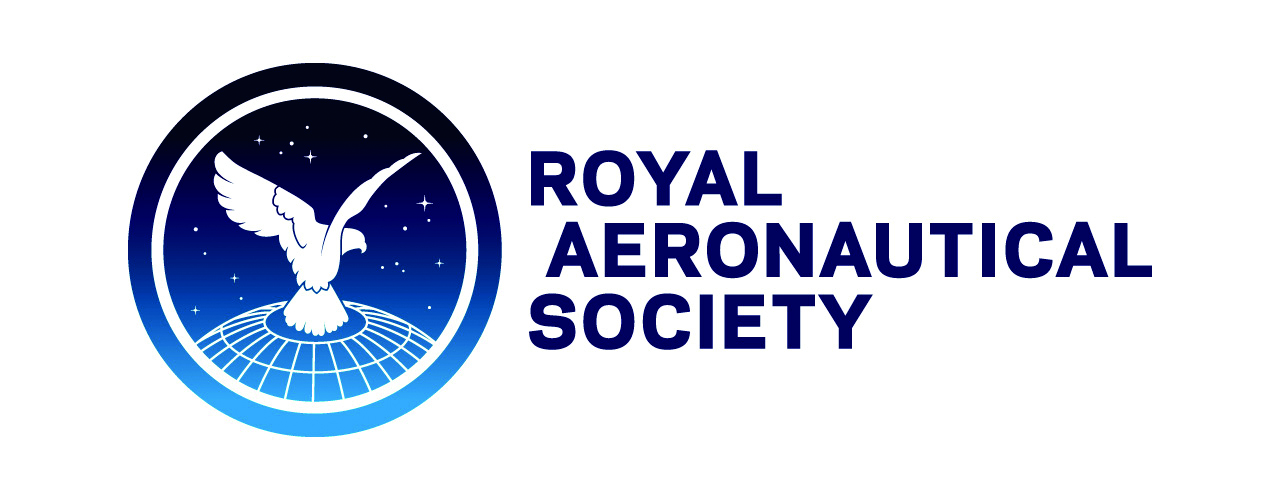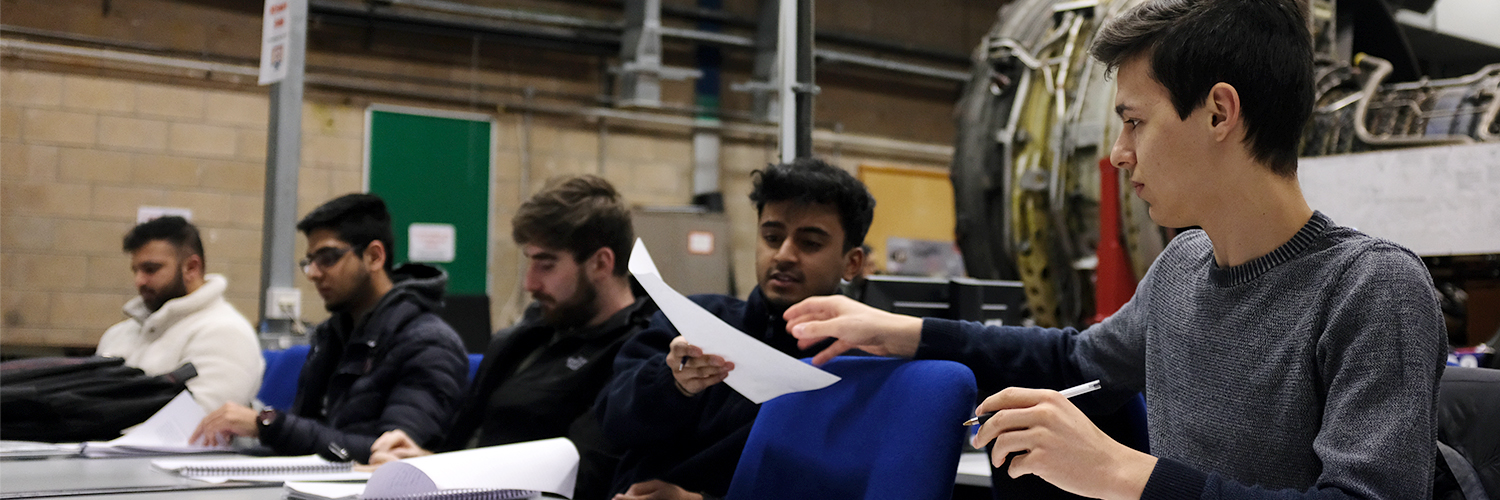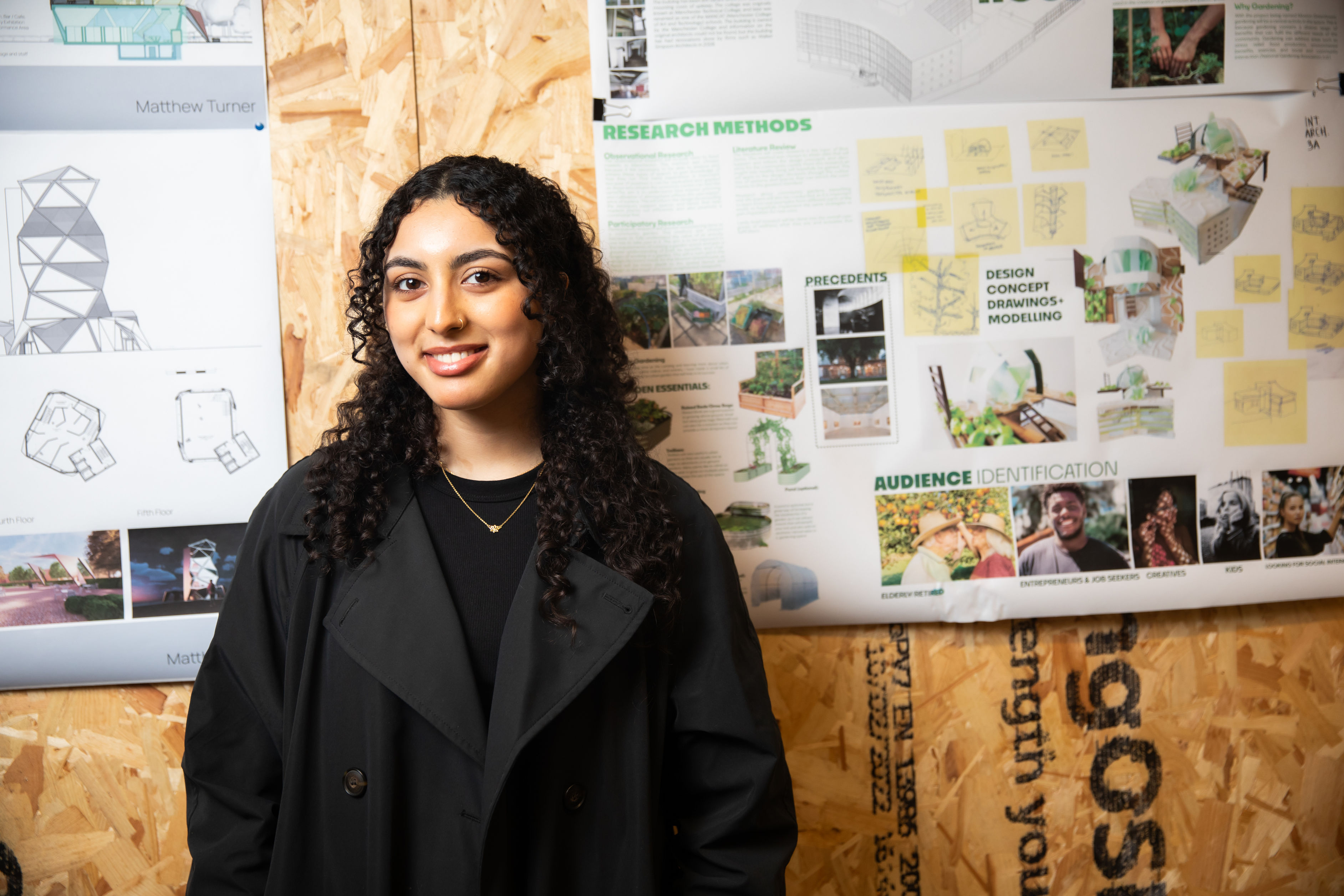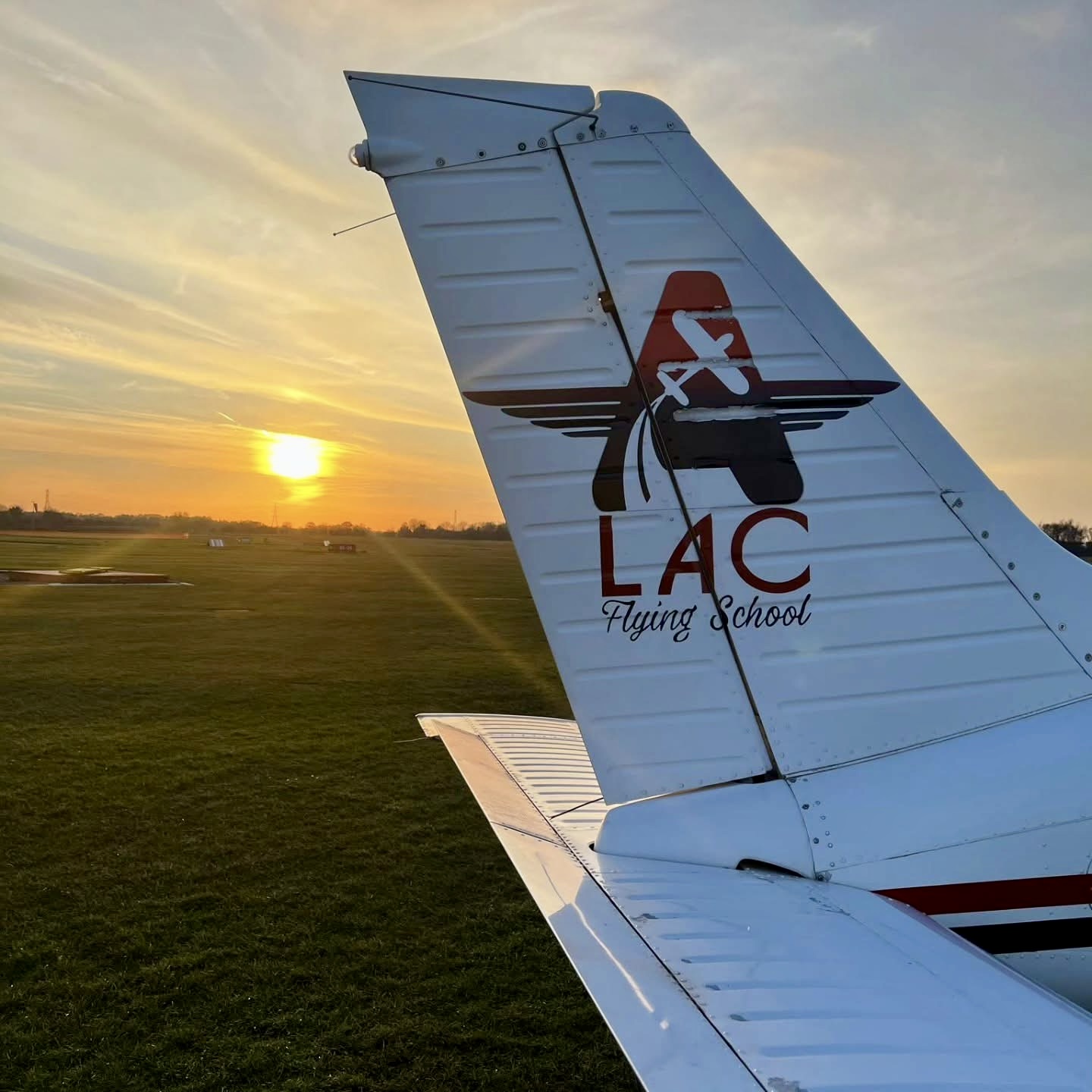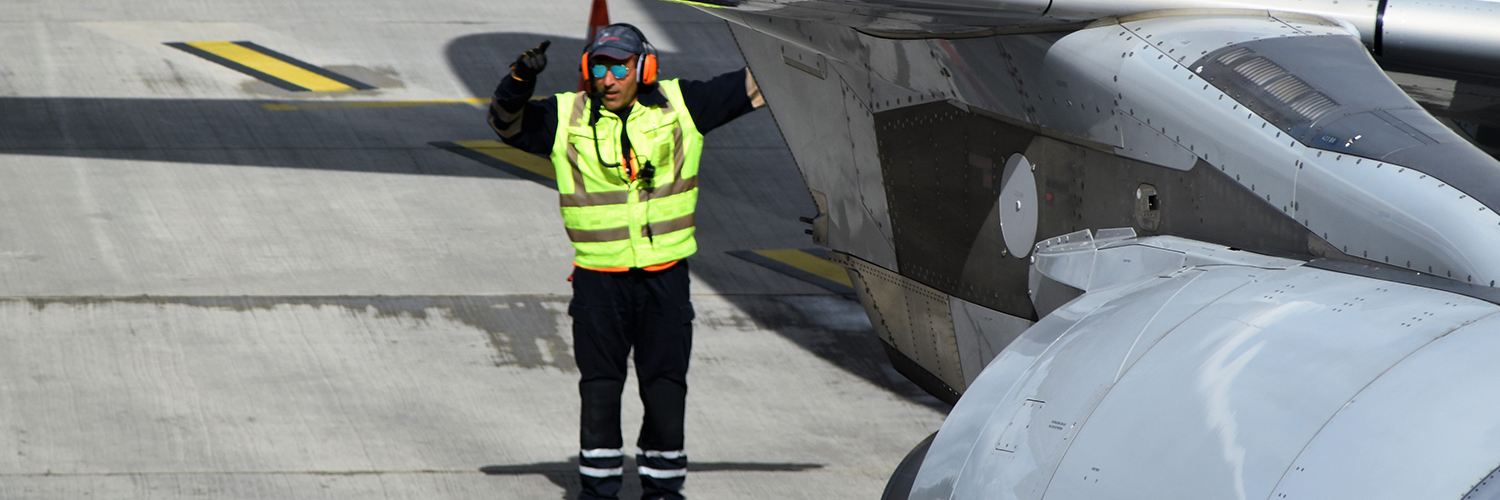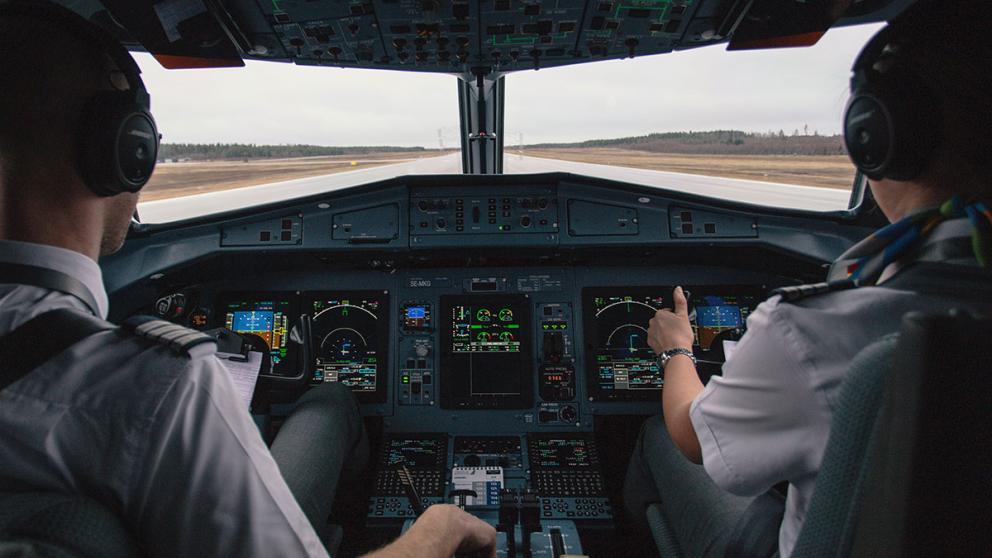
Aircraft Engineering with Pilot Studies
Full-time
With placement
Four year
Five year
September 2026
In a nutshell
This integrated master’s course combines aircraft engineering with a pilot-informed understanding of flight operations, preparing you to analyse, test, and evaluate aircraft as complete technical and operational systems. You will learn how advanced engineering decisions influence aircraft handling, performance, safety, and operational decision-making in real flight environments.
Similar to the BEng programme, you start with building strong foundations in aerodynamics, structures and materials, propulsion, avionics, flight dynamics, and control, before progressing into an advanced final year focused on professional engineering practice. In this additional year, you will develop high-level skills in CFD, FEA, aircraft noise/vibration, flight handling qualities, flight testing, airline and airport operations, and aerospace systems design. You will learn to evaluate aircraft performance, controllability, and compliance using simulation, experimental data, and flight test evidence, while accounting for real operational constraints.
Throughout your studies, you will work in well-equipped laboratories, computer suites, and specialist simulation environments. You will test design concepts, validate dynamic models, and understand how engineering decisions affect aircraft handling and operational performance. Alongside technical expertise, you will develop communication, project management, and decision-making skills.
This integrated master’s pathway aims to equip you with the necessary academic foundation for progression towards Chartered Engineer status and prepares you for more advanced roles across aerospace and aviation.
Start your study journey
Register for our next Open Day to learn more about studying Aircraft Engineering with Pilot Studies, explore our facilities and meet the course team
You will:
- Design and analyse complete aircraft systems, integrating aerodynamics, structures, propulsion, avionics, control, and operational constraints
- Develop advanced simulation skills in CFD, FEA, and MATLAB to support high-fidelity aircraft performance, structural, and flight control analyses
- Analyse flight handling qualities and flight test data to evaluate aircraft controllability, certification requirements, and operational performance
- Apply engineering judgement to airline and airport operations, safety management, and operational planning within regulated aviation environments
- Deliver a major multidisciplinary aerospace systems design project, developing technical leadership, systems thinking, and project management skills
- Have the opportunity to undertake optional pilot training with external providers, subject to eligibility and additional costs
options available
students accepted
This is for you if...
You want to develop advanced engineering expertise and take on higher levels of technical responsibility in aerospace or aviation
You are aiming for roles that involve complex analysis, system-level design, testing, and operational decision-making
You enjoy tackling challenging engineering problems using advanced simulation, modelling, experimentation, and multidisciplinary teamwork
All about the course
Course delivery
Delivered over four years (or five if you choose to include a placement year), you will study a suite of modules that will embed theoretical knowledge, build career-focused skills, and help you become a world-class engineer.
In the first three years, you will study six modules, worth 20 credits each, which are equal to 200 hours of learning time per module. You’ll be involved in various learning environments and laboratories to develop your knowledge of aircraft engineering. The 4th year includes eight modules, worth 15 credits each, which are equal to 150 hours of learning time per module.
The course team has long-standing connections with the aviation industry, both in the North-West and beyond. You will benefit from a stimulating range of lecturers, projects, placement opportunities, and engagement with professional networks.
Learn more about the current course modules below.
Learning experience
Collaboration is core to our values, so we strive to embed this throughout your studies. You will experience group projects that will build your confidence and capabilities in team working, problem-solving and communication - all desirable skills for real-world aeronautical engineering careers.
We are committed to providing the highest professional standards of teaching to our students, so our course is designed to meet the requirements of the Engineering Council’s Accreditation of Higher Education Programme. The programme is accredited by the Royal Aeronautical Society.
Read about student Nataniel's study experience at the university
Learn to fly
Launch Your Aviation Ambitions with the University of Salford.
Take the first step toward earning your pilot’s license through the University of Salford’s ‘Introduction to Flight Training Course’, delivered in collaboration with a trusted local flight training provider.
This bespoke short course offers students a transformative opportunity to gain hands-on flying experience, with 10 hours of flight time officially logged toward your pilot’s license. Training includes essential manoeuvres such as general handling and stalling, and—based on individual progress—may lead to a first solo flight.
To support practical learning, the course features a comprehensive theoretical component. Students will also take part in a guided visit to the onsite maintenance facility, where aircraft are explored in their component form. A licensed engineer will host an open Q&A session, providing valuable insights into aircraft systems and operational safety.
Importantly, this course is funded independently of your academic tuition, offering the flexibility to ‘fly as you go’.
For further details, please contact the course lead:
Robert Weighman
r.a.weighman@salford.ac.uk
Industry placement
You will have the option to take an industry placement year between years two and three. Although you will be responsible for securing your own placement, our tutors will support you in finding a role and monitor your progress throughout.
Introduction to Aviation & Air Vehicle Design
In this module, you’ll first be introduced to the history and terminology of the aerospace and aviation industries, along with some basic theory of flight. Then you’ll undertake a group project to do the preliminary design of a light aircraft conforming to EASA CS-23 standards. It is to be powered by a single piston engine (SEP). You’ll choose the performance of the aircraft based on a survey of the potential market for its type. You will then work in groups through the various stages of the design, both internal and external, checking that the aircraft will meet certification requirements and can do the tasks for which it is intended as well as being commercially viable, developing communication, teamwork, and project management skills throughout the process.
Engineering Dynamics & Electrical Systems
This module introduces core principles of Engineering Dynamics and Electrical Engineering, applying mathematics, natural science, and engineering methods to analyse motion and electrical systems. Kinematics, kinetics, Newton’s laws, energy principles, and circuit theory are used to model linear and rotational systems, recognising limitations of techniques. Activities include interpreting technical literature, investigating systems using laboratory skills, and selecting appropriate materials, equipment, and technologies with awareness of constraints. Circuit diagrams and behaviours under DC and AC supplies are analysed. Emphasis is placed on effective communication in technical contexts, and on planning and recording self-directed learning as a foundation for lifelong development.
Fundamentals of Engineering Mathematics
This module develops core mathematical concepts, notation, and techniques essential for solving complex engineering problems. It reinforces prior knowledge and introduces calculus and algebra to support the application of engineering principles. Emphasis is placed on selecting and applying appropriate analytical techniques, using first principles where necessary, and recognising their limitations.
Mathematical knowledge is applied to reach substantiated conclusions across a range of engineering contexts. The module also establishes a foundation for further mathematical study and supports the development of lifelong learning and self-directed development, forming the basis for continued professional development (CPD) in engineering.
Engineering Structures & Engineering Materials
This module introduces key principles of engineering materials and structural analysis. It covers stress, strain, beam theory, torsion, thermal stresses, frameworks, and Mohr’s circles for stress and strain analysis in two- and three-dimensional components. You will explore material testing, properties through bonding mechanisms, strengthening methods, phase diagrams, heat treatment, and corrosion principles and protection. The types and use of polymer materials will be included. Emphasis is placed on the relationship between material structure and performance, and on applying analytical methods to real-world problems. Laboratory sessions support hands-on learning, while assessments include coursework, and coursework to develop skills in selecting materials and analysing simple structures in mechanical engineering contexts.
Thermofluids fundamentals
This module introduces core principles of thermodynamics and fluid mechanics, applying mathematics, natural sciences, and engineering principles to complex problems. Key topics include energy transfer, fluid behaviour, and the use of analytical and computational techniques for thermofluid modelling, with attention to methodological assumptions and limitations.
Emphasis is placed on evaluating technical literature and data sources to support engineering analysis, and on developing practical investigation skills through laboratory work. Broader considerations such as sustainability, safety, and system performance are addressed. The module also supports effective communication and encourages reflective practice and professional development.
Principles of Air Navigation & Meteorology for Aviation
In this module you will gain proficiency and knowledge in the planning of multiple leg flight plans and build awareness and experience of aviation meteorology. On completion you should have developed skills including practical knowledge of operational procedures; requirements for safe and adequate flight planning; understanding requirements for time planning; the principles of aviation meteorology; and be able to make rational assessments for flight safety by interpreting synoptic weather forecasts.
Aerodynamics Fundamentals
In this module you will learn about the fundamentals of lift and drag generation by aerofoils and wings, the theory of low-speed (incompressible) flow, aerofoil aerodynamics and the thin aerofoil theory, wing aerodynamics and the lifting line theory, the fundamentals of boundary layer theory, an introduction to the theory of high speed (compressible) flow, convergent-divergent nozzles, the equipment and techniques employed in wind tunnel testing as well as take the first steps in conducting an aerodynamic simulation using computational fluid dynamics.
Aircraft Systems Design
This year-long, two-trimester module introduces you to the fundamentals of aircraft systems design. Running alongside the Aeronautical Engineering Aircraft Design module, this module focuses on the integration and development of key aircraft systems, including pilot and passenger cabin systems, environmental control, fuel, hydraulics, electrical, avionics, undercarriage, and high-lift device deployment systems. You will collaborate with aeronautical engineering peers on a conceptual aircraft design project, contributing to the systems aspects while developing project, risk, and quality management skills. The module builds interdisciplinary understanding, preparing you for system-level thinking in aircraft design and operation.
Aircraft Structures Fundamentals
Your understanding of structural integrity, fitness for service, and mechanical properties will be developed through this module. You will become familiar with the analysis of structures under different loading conditions, yield criteria, and direct stiffness methods. Additionally, you will be introduced to the analysis of composite systems.
Engineering Mathematics
This module extends core mathematical knowledge by introducing a broader range of techniques relevant to the analysis and solution of complex engineering problems. Key topics include differential equations, numerical methods, partial differentiation, determinants, matrices, Laplace transforms, and functions of a complex variable. Emphasis is placed on the accurate selection and application of analytical and computational methods, recognising their limitations within engineering contexts. Mathematical principles are developed through lectures, with discipline-specific sessions offering applied examples. Problem-solving seminars support the use of first principles and the development of confidence in modelling and interpreting engineering systems.
Aircraft Stability & Automatic Control
This module introduces you to the fundamental principles of aircraft stability and control systems. You will develop an understanding of static and manoeuvre stability in both longitudinal and lateral-directional motion, and begin to explore key control concepts such as system modelling, first- and second-order responses, PID control, and root locus techniques. Through hands-on laboratory activities and simulation tools, you will apply these ideas in practical settings. By the end of this module, you will be able to interpret simplified flight system behaviours and present your findings using structured engineering communication.
Navigation Systems & Route Planning
This module explores the navigation technologies and planning strategies that underpin modern flight operations. In the first trimester, you will study the principles and applications of key aircraft navigation systems, including VOR, ILS, GNSS, and inertial navigation. The second trimester focuses on route planning, where you will apply aviation regulations and performance data to design efficient flight routes. Through a mix of theoretical learning and practical group work, you will develop the skills to interpret navigation data, plan commercial flights, and respond to real-world operational scenarios.
Individual Project
The individual project involves working independently on a substantial research or industrially relevant task, requiring critical evaluation of technical literature and other reliable sources of information. It promotes the application of an integrated or systems-based approach to solve complex engineering challenges. The work considers environmental and societal impacts, encouraging the development of solutions that minimise adverse effects. Ethical issues are identified and addressed through reasoned decision-making guided by professional codes of conduct. Risk is assessed and managed using structured processes. The project also develops skills in engineering management, commercial awareness, legal frameworks, effective communication, and continuous professional development.
Compressible Aerodynamics & Aircraft Propulsion
This third-year module in Aerodynamics and Propulsion builds on prior knowledge from second-year Aerodynamics and first-year Thermodynamics to explore compressible flows and aircraft propulsion. You will study subsonic, transonic, and supersonic flow regimes, along with propulsion principles and engine inlet/outlet design considerations. Delivered to both Aeronautical Engineering and Aircraft Engineering with Pilot Studies programmes, this module blends theory with application through two dedicated laboratories—one on compressible flow and one on propulsion. Assessment includes a group project involving wing design, manufacturing, and testing; a technical lab report analysing experimental results; and a final in-person exam. The module fosters critical thinking and practical engineering skills.
Aviation Safety, Human Factors & CRM
This module aims to enhance your expertise in aviation safety by developing your ability to critically assess and manage risk. Alongside anticipating safety issues and implementing effective mitigation strategies, you will explore sustainability challenges and emerging security risks that increasingly shape modern aviation. The curriculum covers Human Factors, Crew Resource Management (CRM), Fatigue Risk Management, and Mental Health considerations, providing a holistic understanding of safe operations. By integrating safety, environmental responsibility, and security awareness, the module strengthens your professional competence and significantly enhances your employability within a rapidly evolving and highly regulated global industry.
Avionics
This module will give you an understanding of the electronic and digital systems that support modern aircraft, from core components to integrated avionics architectures. You will study key technologies such as sensors, communication, display systems and automation, and examine how these systems interact to support safe and efficient flight. You will also be able to analyse and design avionics configurations suited to different aircraft and operational needs.
Flight Dynamics & Control
In this module, you will learn about the fundamental principles of modelling aircraft dynamics using state-space and transfer function methods. You will explore longitudinal and lateral-directional reduced-order models, gain insight into desired flight characteristics, and evaluate handling quality metrics. The module also covers classical control methods, including Bode and Nyquist analysis, PID tuning, and digital control implementation. Through simulations and laboratory work, you will develop and test stability augmentation and autopilot systems in line with flight control requirements.
Advanced FEA
This module offers an in-depth introduction to Finite Element Analysis (FEA), focusing on practical engineering applications using industry-standard software. The syllabus introduces students to essential modelling techniques used in real-world engineering practice and professional workflows. The module utilises various element types, including beam elements, thin shell elements, and emphasises the importance of selecting appropriate modelling strategies. You will also learn about element compatibility issues and investigate advanced topics such as modal analysis enabling you to analyse natural frequencies, while transient analysis under dynamic loading conditions provides insight into time-dependent structural responses. By the end of the module, you will have acquired skills to both produce and interpret FEA results.
Advanced CFD
This module offers an in-depth introduction to Computational Fluid Dynamics (CFD), focusing on practical engineering applications using industry-standard software. It covers the governing equations of fluid flow, including laminar and turbulent models, with emphasis on meshing, convergence analysis, and turbulence modelling. Analytical and computational techniques are applied to complex problems, highlighting their limitations. Technical literature is critically evaluated to support modelling strategies. Communication of engineering outcomes is developed through reports and presentations. The module also encourages self-directed learning, supports continuous professional development (CPD), and introduces advanced topics and current research trends relevant to CFD and thermal-fluid sciences.
Flight Handling Qualities & Flight Testing
In this module, you will explore the principles of aircraft performance, flight dynamics, and handling qualities assessment in the context of modern flight testing and certification. You will examine steady and manoeuvring flight, airfield performance, and regulatory requirements for flying qualities. Emphasis is placed on the role of flight testing in evaluating aircraft behaviour and demonstrating compliance with industry standards. Working in teams, you will produce a comprehensive technical report based on flight test data analysis, developing your ability to communicate complex engineering conclusions clearly and professionally in line with current certification and reporting practices.
Airline & Airport Operations
In this module, you will develop a comprehensive understanding of sustainable airline and airport operations, examining how efficiency, environmental responsibility, and security risks intersect across the industry. You will explore flight operations, passenger identification, check‑in and boarding, cargo handling, catering, customer service, and the management of unruly passengers, alongside crisis response and humanitarian support. By analysing operational challenges and proposing solutions aligned with economic, social, and environmental sustainability, you will strengthen your ability to contribute to resilient, secure, and future‑focused aviation operations. This integrated skill set directly enhances your employability in an increasingly sustainability‑driven sector.
Engineering & Society
In this module, you will examine the societal, professional, and organisational contexts of engineering practice, with emphasis on the full life cycle of projects and processes. You will develop skills in project and change management, quality systems, risk and security mitigation, and ethical decision-making informed by professional codes. The module highlights sustainability, EDI, and intellectual property rights within engineering solutions. Through a group design project, you will apply engineering technologies, evaluate environmental and societal impacts, and reflect on team effectiveness. This experience will support your ability to lead and manage complex problems responsibly in diverse and interdisciplinary professional environments.
Aircraft Noise & Vibration
This module provides an in-depth understanding of aircraft noise and vibration, focusing on the physical principles of aeroacoustics and the key noise sources in modern aircraft. Students will explore propulsion and airframe noise mechanisms, sound propagation, and the impact of atmospheric conditions. The module also covers numerical simulation techniques of noise sources, regulatory frameworks, and strategies for noise control. Aircraft cabin noise and vibration issues are addressed alongside practical methods for analysis and mitigation. Ideal for students aiming to work in aerospace, environmental acoustics, or noise control engineering, this module combines theoretical knowledge with industry-relevant skills and practices.
Aerospace Systems Design
In this module you develop in-depth knowledge about and gain practical experience on the design and manufacture of small electric-powered Unmanned Aerial Vehicle (UAV) platforms. You will design based on a set of mission parameters, following the identification of a market niche, and in accordance with Civil Aviation Authority (CAA) guidelines and requirements. A key focus of this module is design for manufacture and hence the design will be built and tested at the end of the module.
We take a flexible approach to our course delivery that promotes diversity and inclusivity and provides a blended learning experience, which will vary to meet specific programme requirements. This learning time includes formal lectures and interactive activities such as seminars, tutorials, practical sessions, laboratory and studio learning. Smaller classes may be used to support collaborative activities such as project and group work and presentations. A range of different assessments and feedback is offered to meet the needs of both our diverse student body and specific subject needs.
Our undergraduate courses are normally made up of 20 credit modules which are equal to 200 hours of learning time. A three-year degree qualification typically comprises a total of 360 credits (120 credits per year).
Please note that exact modules and content offered may vary in order to keep content current and, for courses that offer optional modules, may depend on the number of students selecting particular options. When accepting your offer of a place to study on a programme with optional modules, you should be aware that optional modules may not all run each year. Your tutor will be able to advise you as to the available options on or before the start of the programme. Whilst the University tries to ensure that you can undertake your preferred options, it cannot guarantee this.
Frequently asked questions
What is a MEng degree?
This programme is offered as a 3-year bachelor’s (BEng) qualification or a MEng that has an additional year of study (4 years) that gives you a higher master’s qualification.
What do you do as an aircraft engineer?
An aircraft engineer works on the design and management of next generation aircraft. They recognise structural risks, create an efficient operating environment, and assess vital aircraft information.
How long does it take to become an aircraft engineer?
Our Aircraft Engineering Bachelor of Engineering programme (BEng) last three years or four if a placement year is chosen. We also offer a MEng (Master of Engineering) programme which takes your studies up to four years and gives you a postgraduate level qualification.
Our programmes provide our students with the skills and knowledge sought after in the industry and prepares them for the first steps in their career.
Is aircraft engineering a good career?
Aircraft Maintenance Engineering is a fantastic career choice for those passionate about aviation. It offers a unique blend of technical expertise, hands-on experience, and the satisfaction of ensuring aircraft safety.
Is there a demand for aircraft engineers?
Employment of aerospace engineers is projected to grow 6 percent from 2023 to 2033, faster than the average for all occupations. About 4,200 openings for aerospace engineers are projected each year, on average, over the decade.
School of Science, Engineering and Environment
Rising to the challenge of a changing world, our degree courses are designed to shape the next generation of urbanists, scientists, engineers and industry leaders.
Driven by industry, and delivered by supportive programme teams, you can develop the knowledge and skills to become unstoppable in your career.
Facilities
As an aeronautical engineering student, you will be based in our aeronautical and engineering laboratories that keep teaching and learning apace with cutting-edge innovation and discovery.
The Aerodynamics Laboratory contains low speed and supersonic wind tunnels that help you to determine the aerodynamic properties of an aerofoil section and influence of wing sweep on the lift and drag characteristics of a tapered wing section.
Our Control and Dynamics Laboratory includes flight simulators and programmable control equipment to studying the effects of damping and short period oscillation analysis, forced vibration, and the design and performance of proportional and integral controllers.
Our Merlin MP520-T Engineering Flight Simulator provides you with practical experience of aircraft design.
Our Elite Flight Training System is a fixed base Piper PA-34 Seneca III aircraft simulator designed in accordance with FNPTII requirements.
What about after uni?
Employment
The Aircraft Engineering with Pilot Studies (MEng) provides enhanced preparation for advanced engineering roles across aerospace and aviation, combining deep technical expertise with operational and systems-level understanding. Building on the BEng pathway, the MEng develops higher-level analytical, design, and decision-making skills aligned with industry expectations for professional engineers.
Graduates are well suited to roles such as aircraft performance engineer, flight dynamics or flight control engineer, CFD or FEA analyst, flight test engineer, avionics or systems integration engineer, and airline technical services or operations support engineer. The inclusion of advanced CFD, FEA systems design, aircraft noise, flight handling qualities, and flight testing prepares you for positions involving complex analysis, validation, certification, and safety-critical decision-making.
Salford aircraft engineering graduates work worldwide in organisations involved in aircraft design, manufacture, airline operations, and air traffic services. Alumni can be found at leading companies including Airbus, BAE Systems, British Airways, Ryanair, Leonardo, National Air Traffic Services (NATS), Goodrich, and CTC Aviation.
This course also provides an excellent platform for further study or professional development towards Chartered Engineer status through Royal Aeronautical Society accreditation.
Further study
You might find you want to learn more about automation, engineering and robotics. Building on our engineering expertise, we offer a range of postgraduate courses that can take your interests and career opportunities further. Salford graduates and alumni will also receive a generous fees discount.
- Aerospace Engineering (MSc)
- Advanced Mechanical Engineering. (MSc)
- Robotics and Automation. (MSc)
- Sustainable Air Transport. (MSc)
Some graduates choose to further their subject interest through postgraduate research. The Salford Innovation and Research Centre (SIRC) is home to our engineering research hub, leading projects associated with the design and performance analysis of aircraft and other aerospace vehicles.
What you need to know
Applicant profile
We're looking for applicants who have studied mathematics or physics-based subjects at college. You will ideally already have an interest in aerospace-related matters and desire a future career in this field. You are a keen problem-solver who enjoys a blend of mathematics, theoretical principles, design, computer work, and laboratory work.
English language requirements
All of our courses are taught and assessed in English. If you are an international student and not from a majority English speaking country, you will need IELTS 6.0 with no element below 5.5. We also accept a range of other English language qualifications.
If you do not have the English language requirements, you could take the Pre-Sessional English course, or the International Foundation Year to gain entry onto this degree.
GCSE
English language and Mathematics at grade C/grade 4 or above
UCAS tariff points
128 UCAS points
A level
128 points including two full A-levels required as a minimum, to include Grade B in Maths and an E in a Numerate Science (Physics, Chemistry, Electronics, Design Technology, Computer Science, Statistics).
BTEC National Diploma
Grade DDM required from Engineering or Applied Science. Not accepted: Electrical Engineering, Aviation Operations
T Level
T Levels accepted – grade D. Must be in one of the following subjects:
- Design and Development for Engineering and Manufacturing Maintenance
- Installation and Repair for Engineering
- Manufacturing Engineering, Manufacturing, Processing and Control
Foundation Degree
Degree in a relevant subject (Aeronautical, Mechanical, Civil Engineering), passed with an overall mark of 60 or above.
Access to HE
128 UCAS Tariff points from a QAA approved Engineering or Science subject. Other subjects considered on a case-by-case basis.
Scottish Highers
Two Scottish Higher Levels required, including Maths and a Numerate Science
Irish Leaving Certificate
Two Higher Levels required, including Maths and a Numerate Science
International Baccalaureate
30 points to include grade 5 in Higher Level Mathematics and a numerate Science. Must have passed the full International Baccalaureate to be considered.
International students
We accept qualifications from all around the world. Find your country to see a full list of entry requirements. If you do not have the English language requirements, you could take the International Foundation Year to gain entry onto this degree.
Salford Alternative Entry Scheme (SAES)
We positively welcome applications from students who may not meet the stated entry criteria but who can demonstrate their ability to pursue the course successfully. Once we receive your application, we'll assess it and recommend it for SAES if you are an eligible candidate.
There are two different routes through the Salford Alternative Entry Scheme and applicants will be directed to the one appropriate for their course. Assessment will either be through a review of prior learning or through a formal test.
Please contact Admissions for further information.
How much?
| Type of study | Year | Fees |
|---|---|---|
| Full-time home | 2026/27 | £9,790 per year |
| Full-time international | 2026/27 | £18,120 per year |
Tuition fees will increase in the second and each subsequent year of your course by the rate of inflation, subject to the maximum fee limits set out by the UK Government.
Additional costs
You should consider further costs which may include books, stationery, printing, binding and general subsistence on trips and visits.
International student scholarships
If you are a high-achieving international student, you may be eligible for one of our scholarships.
Learn more about our latest international scholarships.
All set? Let's apply
Enrolment dates
Student information
Terms and conditionsUCAS information
Course ID H492
Institution S03

